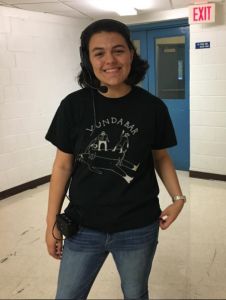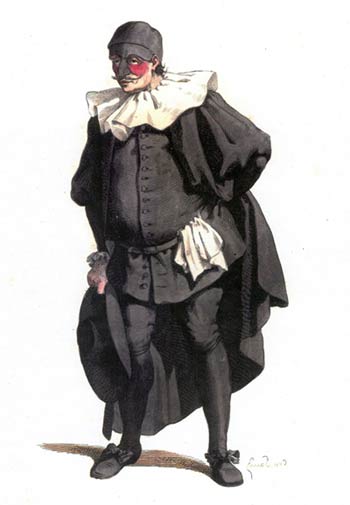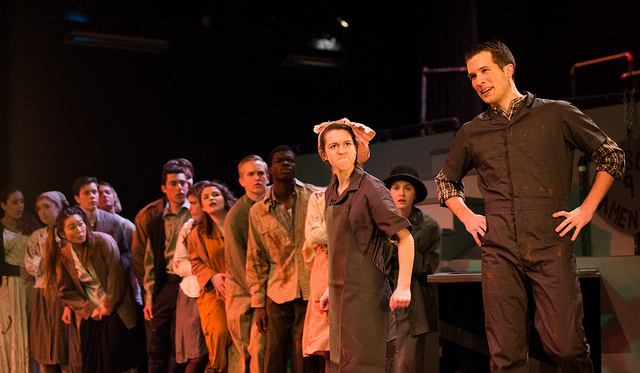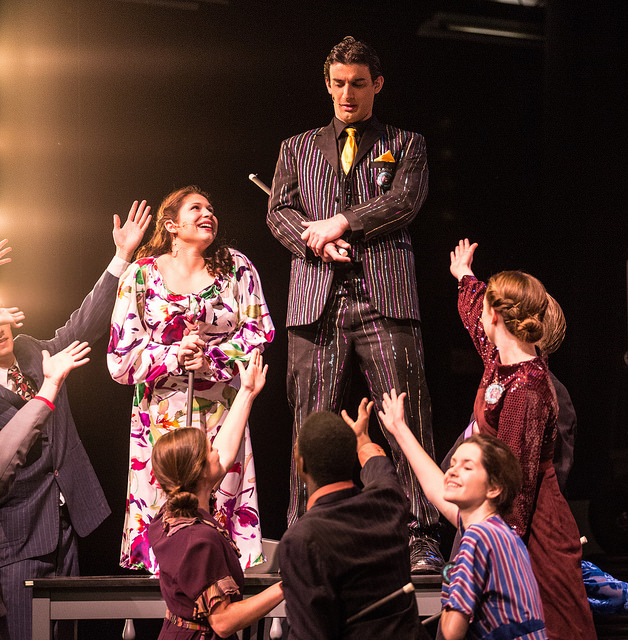School is back in session and the theatre building is already teeming with life. Lots of students, old and new, have excitedly found their way back to the studio theatre inquiring about auditions for the fall play (which are TONIGHT– we waste no time here!). It seems fitting then, for us to announce the season to a broader audience so you can get as excited as we are. Without further ado, here are the plays for the 2016-2017 school year!
FALL PLAY: THE COMEDY OF ERRORS by William Shakespeare
To celebrate the 400th Anniversary of Shakespeare’s death, Williston is producing one of the Bard’s most outlandish and ridiculous works. The Comedy of Errors is a raucous and hilarious play that follows two sets of twins who were separated at birth in a sea-storm. Antipholus of Syracuse and his servant, Dromio of Syracuse, arrive in Ephesus, which turns out to be the home of their long-lost twin brothers, Antipholus of Ephesus and his servant, Dromio of Ephesus. When the Syracusans encounter the friends and families of their twins, a series of wild mishaps based on mistaken identities leads to a near-seduction, arrests, and accusations of infidelity, theft, madness, and demonic possession. Inspired by both the Roman humorist Plautus, and commedia dell’arte of the Italian Renaissance, The Comedy of Errors is truly comedy at its best. In light of this, we are planning special collaborations with our Latin and AP European History students, so stay tuned for more info about that!
October at 27 and 29th at 7:30pm, October at 28th at 8pm. Join us for a talk-back after the show on Thursday October 27th. The performance on October 28th is free for Williston Families.
WINTER THEATRE LAB
Have you ever wondered what happens when you ask a bunch of theatre students to collaborate on a series of one-act plays? Well, it’s pretty fabulous and we call that THEATRE LAB. Students direct, act, design, and stage manage four short plays which gives them a 360 degree look at what goes into theatre-making. Look out for an exciting new twist this year and the names of our four directors!
February 23-25 at 7:30pm.
SPRING PLAY: PETER AND THE STARCATCHER. Written By Rick Elice. Based on the Novel by Dave Barry and Ridley Pearson. Music by Wayne Barker
Based on the popular novel by Dave Barry and Ridley Pearson, Peter and the Starcatcher follows the adventures of a nameless orphan and his new-found friend Molly Aster as they keep a secret treasure safe and out of the hands of the pirate-villain Black Stache. Set on the high seas and a remote island, Peter and the Starcatcher takes its audiences on a magical adventure as we meet lords, orphans, mermaids, sea creatures, and pirates. The story, which serves as a prequel to J.M. Barrie’s novel Peter and Wendy, is theatre magic at its best and guaranteed to touch the hearts of audiences ages 9-99.
April 27-29 and May 4-6 at 7:30pm. Please join us for a talk-back with our cast and crew on Friday April 28th. That evening’s performance is also free for Williston Families.
For ticket information for these productions visit www.williston.com/theater. Tickets will go on sale approximately four weeks before opening.
 A play cannot exist without a stage manager, especially a play with lights, props, entrances, exits, movement, story, and flow. The person who received the Williston Working Artist Award on May 10 is someone who remains invisible during performances, but without her, Williston literally could not have put on a show, theater director Emily Ditkovski said as she presented the award.
A play cannot exist without a stage manager, especially a play with lights, props, entrances, exits, movement, story, and flow. The person who received the Williston Working Artist Award on May 10 is someone who remains invisible during performances, but without her, Williston literally could not have put on a show, theater director Emily Ditkovski said as she presented the award.










